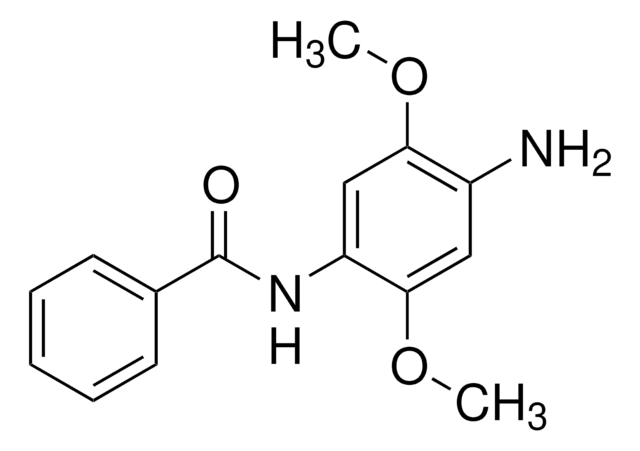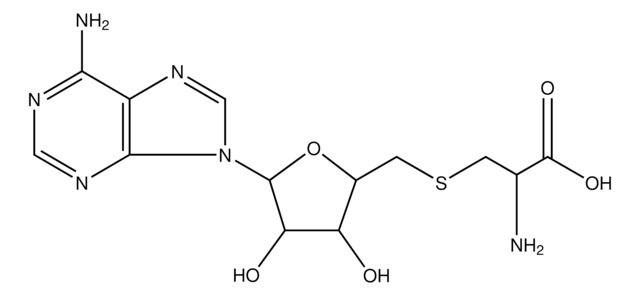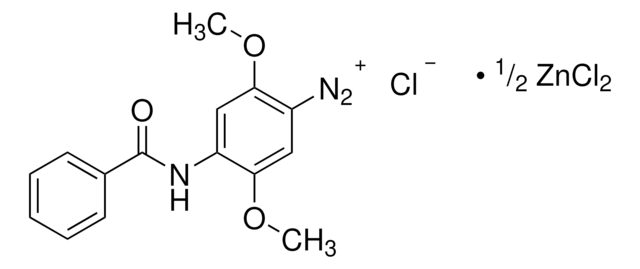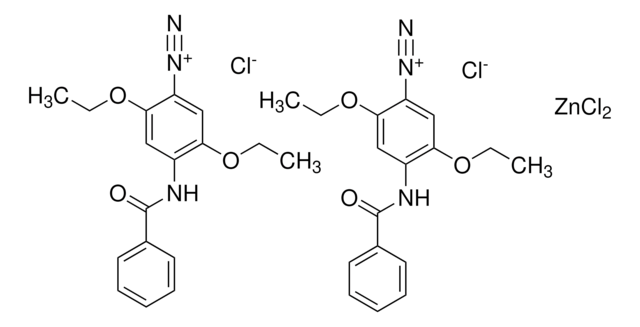L0294
Luxol® fast blue solution
liquid
Synonym(s):
Solvent blue 38
Sign Into View Organizational & Contract Pricing
All Photos(1)
About This Item
UNSPSC Code:
12171500
NACRES:
NA.47
Recommended Products
product name
Luxol® fast blue solution, 1%
form
liquid
concentration
1%
density
0.800 g/cm3
application(s)
diagnostic assay manufacturing
hematology
histology
storage temp.
room temp
General description
Luxol® fast blue solution is a copper phthalocyanine preferred for staining myelin in paraffin processed tissue. Its use is restricted to the tissues of the central nervous system.
Application
Ready-to-use stain for myelin and phospholipids. Luxol® fast blue solution has been used to stain brain tissue in order to analyse the degree of demyelination. It has also been used in histological analysis of adult zebrafish cord, to study time course after injury.
Legal Information
Luxol is a registered trademark of Rohm and Haas Co.
Signal Word
Danger
Hazard Statements
Precautionary Statements
Hazard Classifications
Eye Irrit. 2 - Flam. Liq. 2 - STOT SE 2
Target Organs
Eyes,Central nervous system
Storage Class Code
3 - Flammable liquids
WGK
WGK 2
Flash Point(F)
57.2 °F - closed cup
Flash Point(C)
14.0 °C - closed cup
Personal Protective Equipment
dust mask type N95 (US), Eyeshields, Gloves
Certificates of Analysis (COA)
Search for Certificates of Analysis (COA) by entering the products Lot/Batch Number. Lot and Batch Numbers can be found on a product’s label following the words ‘Lot’ or ‘Batch’.
Already Own This Product?
Find documentation for the products that you have recently purchased in the Document Library.
Customers Also Viewed
X Hu et al.
European review for medical and pharmacological sciences, 20(21), 4516-4524 (2016-11-23)
The occurrence of epilepsy is associated with myelin sheath injury; oligodendrocyte (OL) is the main cell of myelin sheath; In this study, we observed the changes of OL, demyelination, and myelin associated protein in different stages of intractable epilepsy (IE)
Bancroft's Theory and Practice of Histological Techniques E-Book (2018)
Various Modes of Spinal Cord Injury to Study Regeneration in Adult Zebrafish
Hui, et al.
PLoS ONE, 20(21), 4516-4524 (2015)
The relationship between the occurrence of intractable epilepsy with glial cells and myelin sheath--an experimental study
Hu X,et al.
European Review for Medical and Pharmacological Sciences, 20(21), 4516-4524 (2016)
Jing Chen et al.
Neural regeneration research, 16(9), 1836-1847 (2021-01-30)
Inflammation is a major cause of neuronal injury after spinal cord injury. We hypothesized that inhibiting caspase-1 activation may reduce neuroinflammation after spinal cord injury, thus producing a protective effect in the injured spinal cord. A mouse model of T9
Our team of scientists has experience in all areas of research including Life Science, Material Science, Chemical Synthesis, Chromatography, Analytical and many others.
Contact Technical Service












